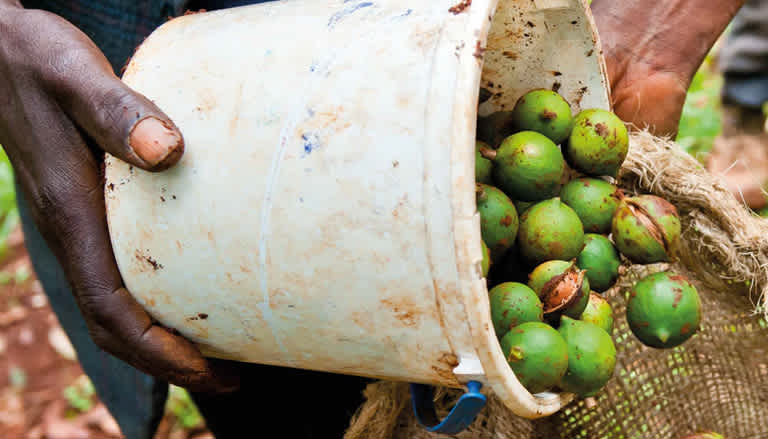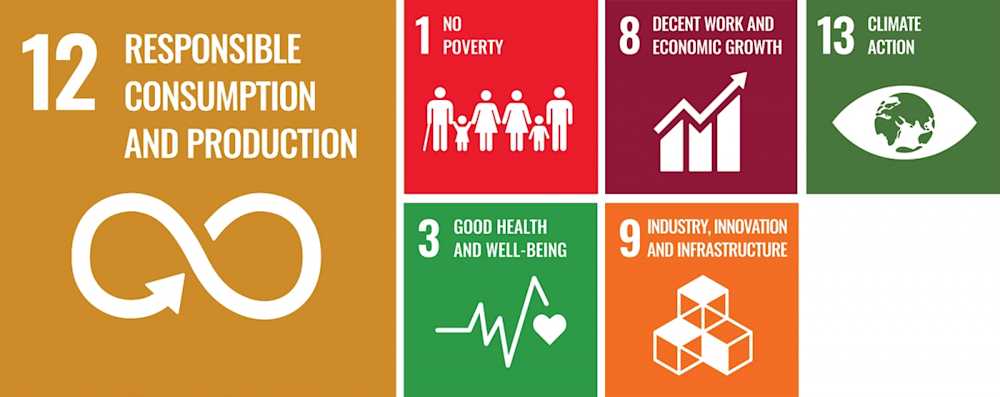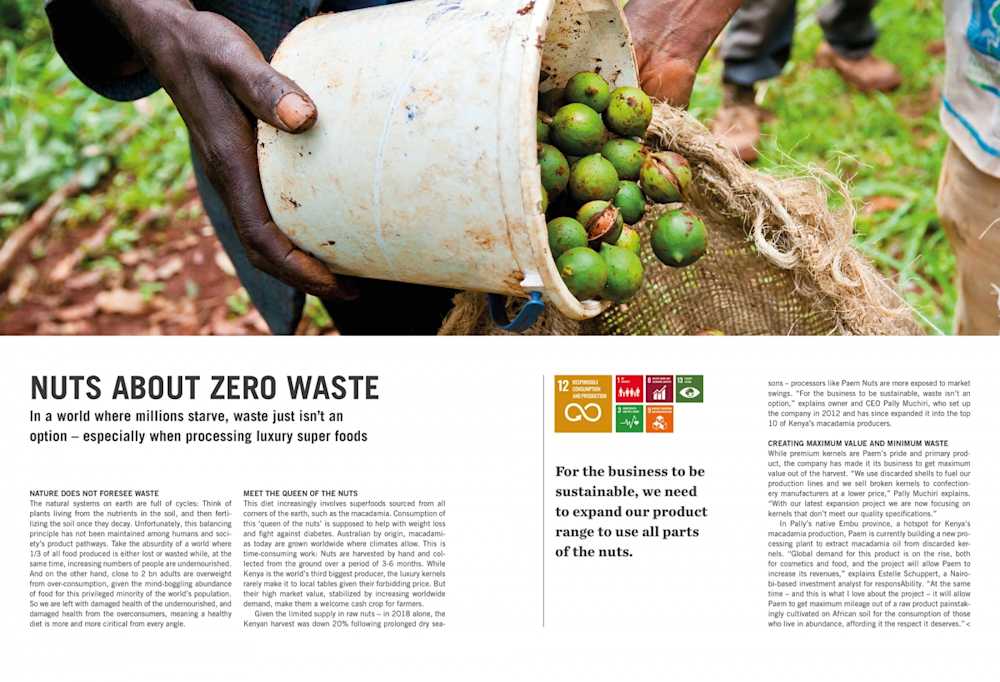Sustainable food
Nuts about zero waste

In a world where millions starve, waste just isn’t an option – especially when processing luxury super foods
Nature does not foresee waste
The natural systems on earth are full of cycles: Think of plants living from the nutrients in the soil, and then fertilizing the soil once they decay. Unfortunately, this balancing principle has not been maintained among humans and society’s product pathways. Take the absurdity of a world where 1/3 of all food produced is either lost or wasted while, at the same time, increasing numbers of people are undernourished. And on the other hand, close to 2 bn adults are overweight from over-consumption, given the mind-boggling abundance of food for this privileged minority of the world’s population. So we are left with damaged health of the undernourished, and damaged health from the overconsumers, meaning a healthy diet is more and more ciritical from every angle.
“For the business to be sustainable, we need to expand our product range to use all parts of the nuts.”

Meet the queen of the nuts
This diet increasingly involves superfoods sourced from all corners of the earth, such as the macadamia. Consumption of this ‘queen of the nuts’ is supposed to help with weight loss and fight against diabetes. Australian by origin, macadamias today are grown worldwide where climates allow. This is time-consuming work: Nuts are harvested by hand and collected from the ground over a period of 3-6 months. While Kenya is the world’s third biggest producer, the luxury kernels rarely make it to local tables given their forbidding price. But their high market value, stabilized by increasing worldwide demand, make them a welcome cash crop for farmers.
Given the limited supply in raw nuts – in 2018 alone, the Kenyan harvest was down 20% following prolonged dry seasons – processors like Paem Nuts are more exposed to market swings. “For the business to be sustainable, waste isn’t an option,” explains owner and CEO Pally Muchiri, who set up the company in 2012 and has since expanded it into the top 10 of Kenya’s macadamia producers.
Creating maximum value and minimum waste
While premium kernels are Paem’s pride and primary product, the company has made it its business to get maximum value out of the harvest. “We use discarded shells to fuel our production lines and we sell broken kernels to confectionery manufacturers at a lower price,” Pally Muchiri explains. “With our latest expansion project we are now focusing on kernels that don’t meet our quality specifications.”
Invest in sustainable food INVESTMENT PRODUCTS
In Pally’s native Embu province, a hotspot for Kenya’s macadamia production, Paem is currently building a new processing plant to extract macadamia oil from discarded kernels. “Global demand for this product is on the rise, both for cosmetics and food, and the project will allow Paem to increase its revenues,” explains Estelle Schuppert, a Nairobi-based investment analyst for responsAbility. “At the same time – and this is what I love about the project – it will allow Paem to get maximum mileage out of a raw product painstakingly cultivated on African soil for the consumption of those who live in abundance, affording it the respect it deserves.”

This article was originally published in Impact for Climate, the responsAbility Impact Report 2019. Find the entire publication here: IMPACT FOR CLIMATE